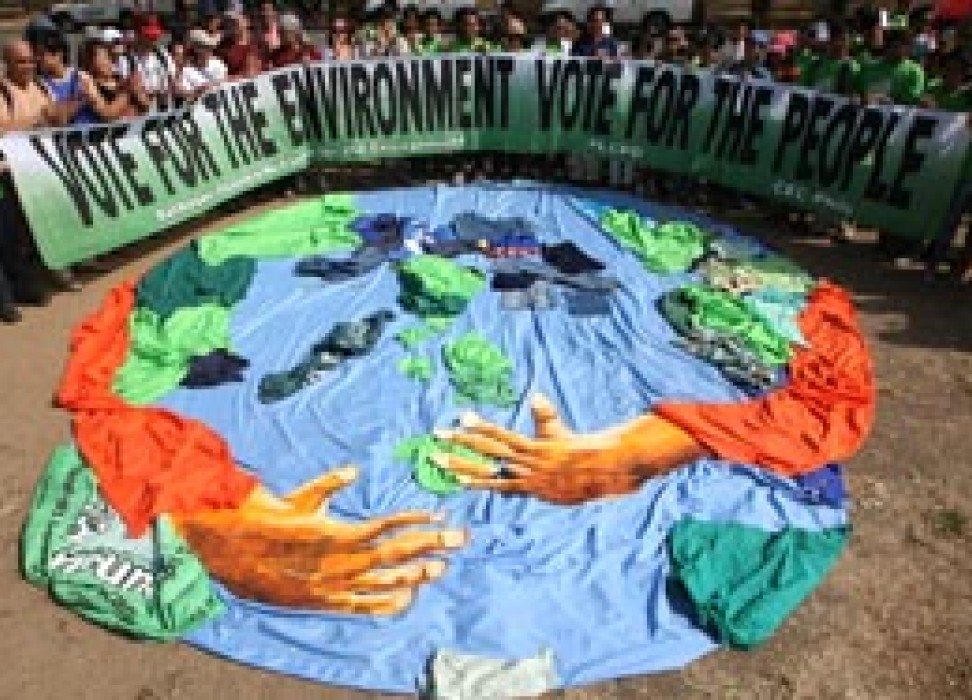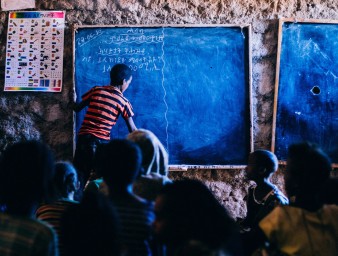Globalization – a paradox of perils and opportunities
10 October 2012

Addressing this year’s Social Forum in Geneva, organized by the UN Human Rights Office, Qatar’s Ambassador to the UN in Geneva, H.E. Alya Al-Thani, said globalization offers both opportunities and challenges for people-centred development.
Al-Thani was appointed by the Human Rights Council to chair this year’s Forum.
The Forum, Al-Thani said, “will help us assess how to realize a vision of the world in which the connections between States, peoples, businesses, and international organizations do not render us vulnerable to crises but rather strengthen us by fostering a globally enabling environment for people-centred development”.
Participants to the 2012 forum travelled to Geneva from all regions of the world to consider a broad range of subjects including participatory development, democratic governance, the rights of older persons, the promotion of women’s rights through social media, taxing financial markets and promoting responsible lending.
In a video message, Nobel peace prize winner, Tawakul Karman, from Yemen, described the struggle for democracy across the Arab world: “The young people who participated in the Arab spring”, she said, “were not afraid of anything except failure.”
Sustainable development is crucial Karman said for “the elimination of poverty, the elimination of ignorance and to ensure true democracy.” “We must make globalization into a positive phenomenon that could benefit all people” she said.
The benefits of globalization cannot be enjoyed in countries with tyrannical regimes, she said. Likewise, such regimes are “the enemy of peace and of development,” Karman said.
A report prepared for the Forum by the UN Human Rights Office, describes a global situation where, despite commitments over many years by the international community to link human rights and development, “in practice, development has been viewed as synonymous with economic growth and measured in material terms only.”
The report cites examples contributed by different States which described development models that failed to benefit people because “they worked with a limited notion of development, which only “equated to wealth creation or economic growth” and situations where high rates of growth did not reach “all sections of society and in all parts of the country equitably.”
It also describes efforts made by a number of countries to address “the need for new measures of development. It cites Bhutan which has a Gross National Happiness Index which aims to “gauge the happiness and well-being of its people and give equal importance to non-economic aspects of their wellbeing.” Ecuador and Bolivia, the report says, have also “framed their Constitutions around the idea of Buen Vivir (living well) which calls for sustainable development, peace and harmony.”
President of the Human Rights Council, Laura Dupuy Lasserre, in her address to the Forum said, “Our growing interdependence, and both the positive and negative consequences of globalization, make the constructive engagement of multiple stakeholders an imperative of governance at all levels.”
Problems such as climate change, natural disasters, epidemic diseases, unemployment, migration, displacement, violent conflicts, human trafficking, the sale of arms and the dumping of toxic wastes, she said, “transcend national borders, threaten the lives and livelihoods of millions and undermine the objectives of social justice, peace and security.”
“Such problems, often the product of globalization, call for holistic, international solutions,” Lasserre said.
10 October 2012

VIEW THIS PAGE IN:



